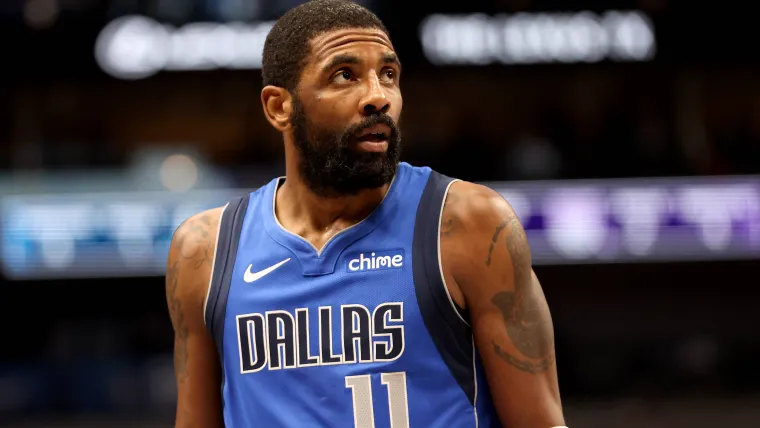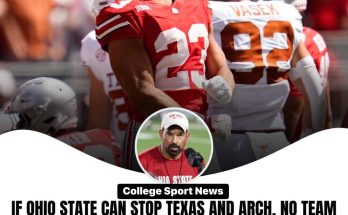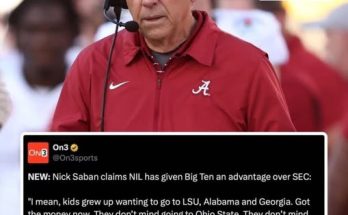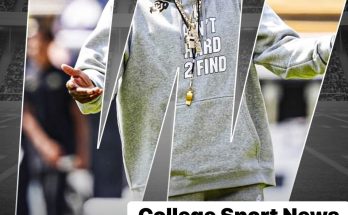The Dallas Mavericks have faced their fair share of ups and downs over the past few seasons, but few storylines have been as closely followed as the status of Kyrie Irving—an enigmatic superstar whose talent is undeniable, yet whose presence on the court is often overshadowed by off-court narratives. When injury concerns inevitably surfaced once again this summer, speculation reached a boiling point. Fans, media, and even casual observers wondered aloud: What’s really going on with Kyrie? Is his injury worse than reported? Is he falling into another prolonged absence that might affect team chemistry or derail the Mavericks’ momentum?
In the middle of this growing storm of questions, Mark Cuban, the ever-outspoken and media-savvy owner of the Dallas Mavericks, stepped forward to clarify matters in a statement that was as direct as it was strategic. Cuban, known for his candor and willingness to defend his team and players against outside noise, laid the groundwork for public understanding regarding Irving’s injury status. But more than that, he delivered a clear message to all stakeholders—this is not a crisis; this is business as usual.
Cuban’s statement, though brief in words, carried a lot of weight in terms of tone and intent. He emphasized that Kyrie Irving is “progressing as expected” and that the Mavericks’ medical staff is “confident in the recovery timeline.” He didn’t offer unnecessary optimism, nor did he allow for ambiguity. Instead, Cuban made it clear that there is a plan in place and that everyone within the organization, from the coaching staff to the front office, is aligned in their approach.
This kind of clarity is critical for several reasons. First, the Mavericks are not just a team—they’re a franchise with a rapidly growing national and international brand, and that brand is heavily tied to its star players. Luka Dončić may be the centerpiece, but Irving’s name still rings loud, both for his highlight-reel play and for his history of unpredictability. Any disruption, real or perceived, involving Kyrie is bound to stir headlines. Cuban’s decision to proactively address those concerns reflects a keen awareness of media dynamics and public perception.
Second, this clarity matters for internal morale. The Mavericks, like all NBA teams, must operate as a cohesive unit to contend for championships. While Kyrie Irving’s skillset makes him a valuable asset on the court, his absences—whether due to injury, personal matters, or other circumstances—have historically left a vacuum that can unsettle even the most seasoned locker rooms. By stating unequivocally that Irving’s situation is under control, Cuban is protecting the stability of the team and maintaining the focus on the bigger picture: preparation for the upcoming season.
It’s also worth considering Cuban’s remarks through the lens of player empowerment and modern NBA politics. In an era where superstars have unprecedented leverage and mobility, it’s easy for teams to fall into a reactive posture—saying little or nothing about a star’s condition for fear of upsetting the delicate balance of trust. Cuban’s willingness to speak suggests that the relationship between Irving and the Mavericks’ leadership is, at the very least, functional and based on mutual understanding. That’s no small feat given Irving’s history with previous franchises, where injuries often coincided with whispers of dissatisfaction or future exits.
Still, skepticism remains, and Cuban likely knew that his statement would not silence all critics. The truth is, when it comes to Kyrie Irving, injuries are not just physical setbacks—they are narrative pivots. Every time he misses time, the question arises: Will he return the same? Will he still be engaged? Does he still want to be here? Cuban’s statement was a deliberate attempt to neutralize those questions before they could gather momentum. It’s a strategy rooted in consistency and confidence, two things Irving has lacked in public perception but that Cuban is now trying to restore.
This moment also says something larger about how Cuban sees the future of the Mavericks. With Dončić entering the prime of his career and the Western Conference as competitive as ever, Cuban cannot afford distractions—at least not ones that can be controlled through communication. By getting out in front of the Kyrie narrative, Cuban is not just protecting his player; he’s also safeguarding the direction of the team. A healthy and focused Kyrie Irving is a critical piece of Dallas’ championship ambitions. A swirling vortex of rumors and conjecture is not.
Some observers noted that Cuban’s statement did not include a definitive return date or specific details about the injury. For some, that omission seemed evasive. But for others, it was a calculated decision to avoid over-promising or tying the team’s fate to a moving target. NBA injuries, especially involving high-usage guards like Irving, are notoriously fickle. One day of progress can be followed by a setback. Cuban’s emphasis on process over promises signals a mature approach that prioritizes sustainable recovery over rushed heroics.
The media circus that often follows Irving may now quiet, if only temporarily, but Cuban’s statement will linger as a benchmark of transparency. It sets a tone for how the Mavericks plan to handle adversity this season—not with panic or silence, but with proactive, direct messaging. It’s a leadership approach that reflects Cuban’s broader philosophy as an owner: engage, communicate, and control the narrative where possible.
What’s also striking about this moment is the contrast between Cuban’s handling of the Kyrie injury and how similar situations have played out elsewhere in the league. In some markets, player injuries are treated like state secrets. General managers and owners hide behind vague medical updates, and coaches dodge questions postgame. Cuban, on the other hand, steps into the spotlight with intention. His approach invites accountability, even when it invites scrutiny. And in Kyrie’s case, it’s a form of leadership that might be precisely what’s needed.
Kyrie Irving is not a typical player. His journey through the NBA has been marked by brilliance, controversy, reinvention, and resistance to the status quo. In Cuban, he has found an owner who is equally unorthodox—someone who understands the value of narrative, the importance of trust, and the power of public clarity. This dynamic may not guarantee championships, but it does create an environment where challenges can be met head-on instead of whispered about in the shadows.
Of course, none of this matters unless Irving returns to form and contributes meaningfully to the Mavericks’ success. Cuban’s statement is a prelude, not an endpoint. It sets expectations, but the real test will come when Irving steps back on the court, reclaims his rhythm, and reasserts his place as one of the most gifted scorers and ball handlers in the game. The Mavericks don’t just need him healthy—they need him bought in, fully engaged, and locked into the team’s championship timeline.
Until that happens, Cuban’s words will serve as both shield and signal. They shield Irving from the inevitable swirl of conjecture that follows any prolonged absence, and they signal to the basketball world that the Mavericks are not flinching. They are building, they are planning, and they are counting on Kyrie to be part of that journey.
In the end, Mark Cuban’s statement is not just about injury management—it’s about culture, control, and the continued evolution of a franchise that refuses to be derailed by the unexpected. Whether or not Irving’s health holds, the Mavericks are putting their cards on the table. And Cuban, as always, is the one dealing.



